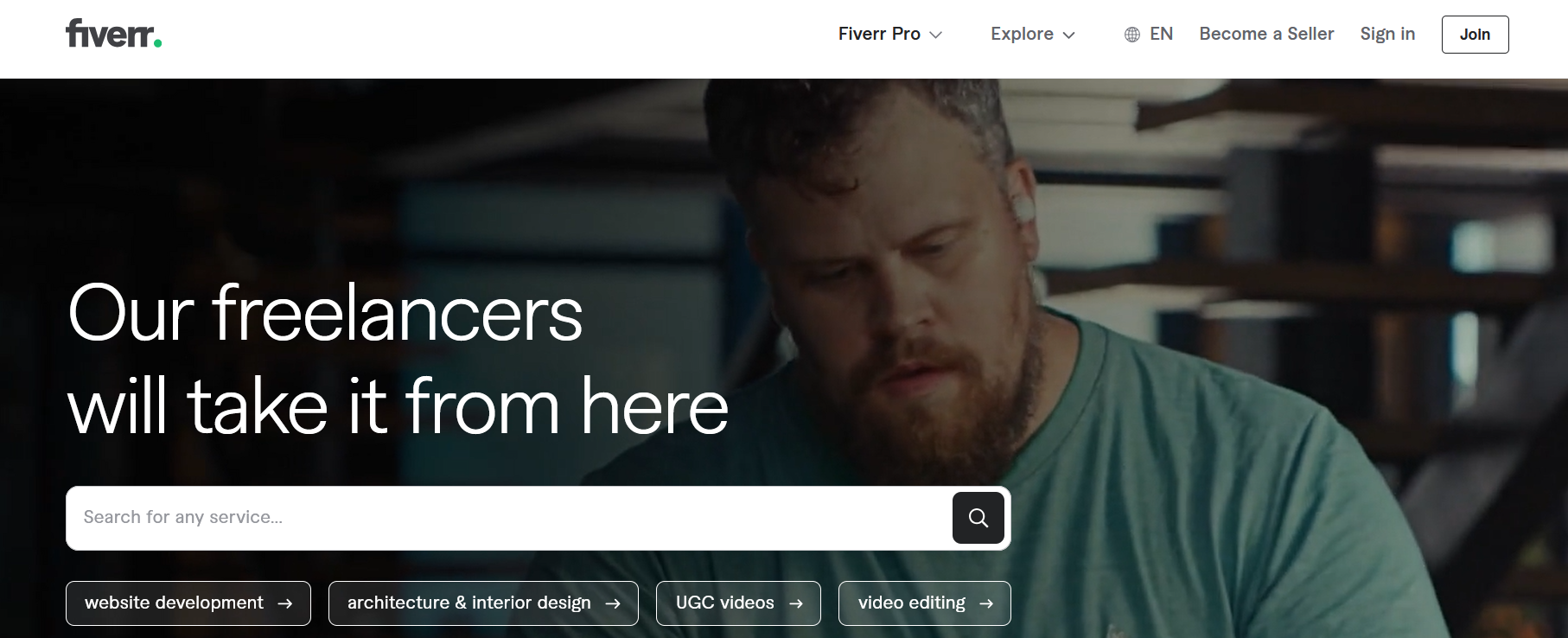Fiverr (
www.fiverr.com) has emerged as a dominant force in the global
freelance marketplace since its 2010 launch. As of 2025, it connects
over 5.6 million active buyers with 830,000+ skilled freelancers across
500+ service categories, spanning graphic design, programming,
marketing, writing, and AI-powered digital services. Its tiered pricing
model (Basic/Standard/Premium) and AI-driven matching system set it
apart in the competitive gig economy.
Fiverr official Website: https://www.fiverr.com
Service Taxonomy:
Gigs: Pre-packaged services starting at $5 (now rare; most premium gigs range $20-$500)
Projects: Customized solutions via Fiverr Pro (vetted experts) and Enterprise (corporate teams)
Add-ons: Optional extras like expedited delivery or source files
Platform Mechanics:
Search & Filtering: AI-enhanced with natural language processing (e.g., "logo design for fintech startup")
Seller Levels: Level 1 → Level 2 → Top Rated → Pro (with escalating commission rates: 20%→10%)
Fiverr Workspace: Integrated project management tools (time tracking, file sharing)
2025 Innovations:
AI Service Assistant: Recommends freelancers based on project briefs
Neural Translation: Real-time chat translation in 45+ languages
Blockchain Escrow: Secure payments via Fiverr Wallet
Competitive Advantages
Niche Specialization: Deep subcategory segmentation (e.g., "TikTok Ad Scripts" under Video Marketing)
Quality Control: Mandatory skill tests for Pro sellers + 48-hour dispute resolution
Global Reach: Supports payments in 135 currencies with localized pricing
Critical Challenges
Fee Structure: 20% service fee on freelancer earnings remains contentious
Algorithm Bias: New sellers struggle with visibility versus established profiles
Service Saturation: Oversupply in competitive categories (e.g., logo design)


